Rifle Club star Darshana Rajendran: Had faith Malayalam cinema would give me a chance to be part of something bigger
Malayalam actress Darshana Rajendran, who played Kunjumol in Aashiq Abu’s Rifle Club, opens up about working in the film, being part of the ‘golden’ era in Malayalam cinema and more
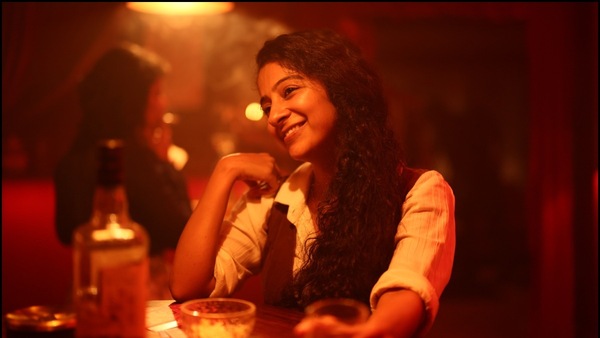
Last Updated: 05.11 PM, Dec 27, 2024
Malayalam actress Darshana Rajendran will definitely be mentioned along with her contemporaries like Parvathy Thiruvothu, Anna Ben and Nimisha Sajayan, while talking about this 'golden' era of the industry that has helped redefine how women are portrayed in cinema.
Her latest performance in Aashiq Abu's Rifle Club, which had her sharing screen space with Dileesh Pothan, Unnimaya Prasad, Surabhi Lakshmi, Vani Vishwanath and Anurag Kashyap, showcases her knack for choosing diverse roles, and acing it as well. In this exclusive interview with OTTplay, the Jaya Jaya Jaya Jaya Hey and Purusha Pretham star talks about the collaborative energy of the Rifle Club team, the growing prominence of female-driven narratives in Indian cinema and more.
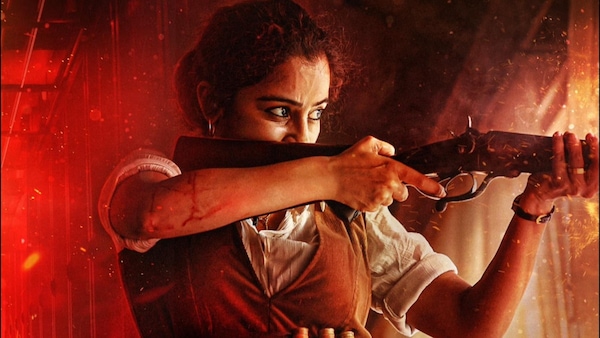
Tell us about being active as an actress at a time in an industry like Malayalam cinema that makes even the zaniest ideas possible – including Rifle Club, which is essentially a Western film set in the high ranges of Wayanad.
I think it’s a blessing and the reason I have found the space I have is because I am part of this industry. When I started out, I was doing small characters. I was enjoying that as well, but there was always this thought, you were probably meant for bigger things, and it won’t come to you if you do small roles. But somehow, I had faith that if there was one industry that would still give me a chance, it was probably Malayalam cinema. And it came true. I really do feel that with every new film I am signing, I am really excited about the characters I am getting to play.
Also read: Rifle Club movie review: Aashiq Abu’s all-star cast fires in this fun, crisp and riveting thriller
Aashiq Abu uses your character Kunjumol in the movie as a surprise package of sorts. She is the most endearing person in the group, who then turns out to be a firecracker herself. Was that also the element that appealed to you the most?
Every time Aashiq ettan has a character for me, I feel it’s going to be something fun and explore something new. So, it’s always exciting for me as I get to do things I haven’t yet in my movies. I love that he uses me in different ways.
I didn’t know much about the film before I came on board. Someone else was supposed to play this part and that didn’t work out. So, I was tied up with another shoot, and I literally ran into this set. I didn’t know anything that was going on. I ran in and sat around that big table. There was Vishnu (Agastya) next to me and he said, ‘I play your husband’. So, it was a very trust-based thing. I had worked with Aashiq ettan thrice before (Mayaanadhi, Virus and Aanum Pennum) and Syam (Pushkaran) ettan and Suhas are also people I have worked with earlier. So, I didn’t have any thoughts of whether I would be part of it or not, it was just about how I would manage it.
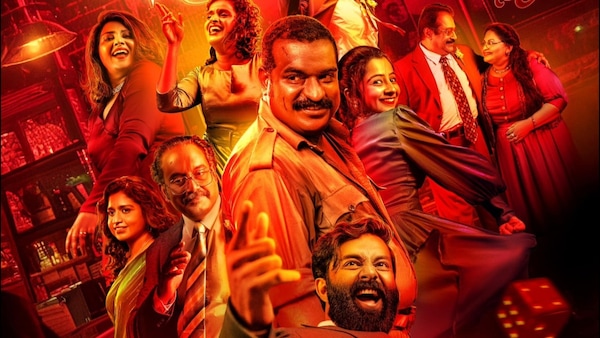
Rifle Club is a film that’s packed to the brim with talent, all playing pivotal characters. It’s also not an easy movie to give each character their due. In your career of late, you have picked characters who have added value to a film. In that sense, was there ever a concern that this particular role might not accomplish that?
Not at all. I really enjoy being part of ensemble pieces. I love being part of a unit and I get to do a lot of that in theatre, where you are one piece of a big puzzle, and every piece makes sense when it all comes together. In films, there is always that question of where do you stand in the overall scheme, but with Rifle Club, I trusted the makers. I had zero qualms about what they were using me for. It was a fresh experience to be part of a 25-member cast.
And they were all such great co-actors, all celebrating each other. When Anurag Kashyap came for his shoot, he was like, ‘What is this? Why are all of you friends? Why is it all so easy here?’ It was a great space where everyone was cheering each other on.
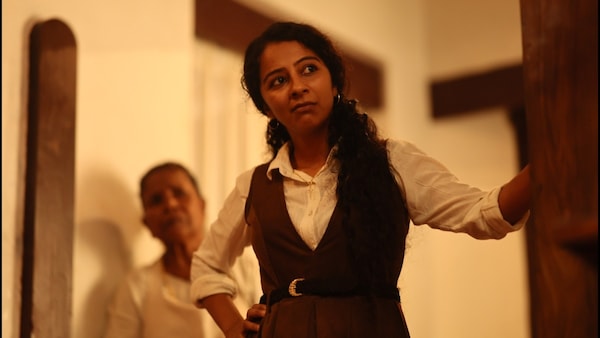
Anurag, in recent interview, too had said that the reason Rifle Club worked was because the cast were all together, even when they weren’t shooting.
We didn’t have caravans. Because we were shooting on a hilltop, it was difficult to get caravans there. So, there were these tent cabins where all the actors that you see onscreen got ready, had food and slept. I was shooting for Krishand’s series (Sambhava Vivaranam Nalarasangham - The Chronicles of the 4.5 Gang) during the month that Rifle Club was being shot and that’s why I was initially figuring out the dates. I had to literally travel, almost every alternate day, for three hours from one set to another. So, I was sleeping in cars and I hadn’t done that before. So, when I used to come, these people would make the most space for me, so I could take a nap.
It was a really comfortable place where there was a lot happening other than shoot as well. We got to bond as a team and get to know people. There were so many senior actors who have been doing this for such a long time; you don’t get to break the ice with them on another set where you are just meeting them on and off while doing a scene. In this case, we didn’t know whose shot was next and all of us were just there – from morning till night.
For instance, we used to call Vijayaraghavan, ‘Randara Kuttettan’, because on some days, he was there the whole day and it was only at 2.30 am that he would finally get a shot. And he used to joke about it. Everyone was just on with the plan that this is how things happen, and let’s make it a good time.
This film also had a lot of directors including Senna Hegde, Anurag Kashyap, Dileesh Pothan and Natesh Hegde, and Aashiq was handling multiple responsibilities including being its filmmaker, cinematographer and producer.
Yes, if you threw a stone on the sets, the possibility of it hitting a director was high. But they were there as actors, and that was great to see. I didn’t hear the discussions between them. On the sets, Aashiq ettan was our director and we were all there to make this project happen for him. It was that sort of an environment.
I had worked with Syam ettan in Maayanadhi, and how he works with his actors, and develops the characters are all very collaborative. He manages to add something that you bring in. I am sure he would have done that with these directors as well.
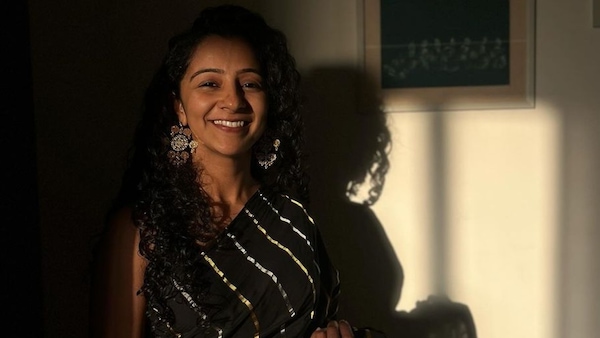
This year also saw a lot of movies like All We Imagine As Light, Laapataa Ladies, Kottukkaali and Ullozhukku that ensured that the voices of women are heard, and these movies were discussed globally. Has that made it easier for writers and directors to do more movies like these with women protagonists?
For sure. I think there was a time where it did feel like, ‘Are there only going to be certain big films like the entertainers?’ ‘Where are the kind of films that I resonate with?’ I feel like things have changed. There are so many movies that I have enjoyed watching, that are coming up and a lot of my friends are part of. There are a lot more interesting filmmakers and women who are coming up with interesting stories, and hopefully, I will get to be part of some of those. And that’s a great thing to look forward to.
Subscribe to our newsletter for top content, delivered fast.

